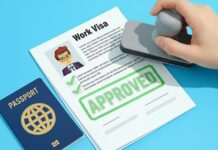Preparing for a job interview goes far beyond just looking up common questions online (though that’s certainly part of it). Given the competitive nature of today’s job market, where recruiters receive numerous resumes within hours of posting a job, it’s crucial to invest time in thorough preparation to ensure you stand out.
Each company has its own unique interview process, which can often be unpredictable. Even if you find specific sample questions for a company, there’s no guarantee those exact questions will be asked. The aim of preparing for an interview is to practice as much as possible, building confidence and readiness for any question that comes your way, even those you might not have an immediate answer for.
To assist you in this endeavor, we’ve gathered over 30 of the best interview tips, curated from top career guides and experts. Buckle up, take some notes, and get ready to excel in your interview.
- Research the Company Thoroughly This is the cornerstone of interview preparation. Delve into everything about the company from multiple sources, including their website, recent news articles, and their profiles on career sites. Speaking to current or former employees can also provide valuable insights. Erin McGoff, founder of AdviceWithErin, suggests reading the company’s mission, careers page, and case studies, and then looking for recent news mentions. Being well-versed in this information can impress your interviewers and show your genuine interest in the company.
- Understand the Job Description Inside Out The job description is your guide to what the company is seeking in a candidate. Learn it thoroughly and try to incorporate its key points into your answers during the interview. This demonstrates that you’re well-prepared and understand what the role entails, making you a better fit for the company’s culture.
- Experience the Company’s Product or Service If the company sells products or offers services that you can access, make sure to try them out before your interview. This firsthand experience shows the hiring manager that you’re genuinely interested in the position and understand the company’s offerings. Whether it’s reading their publications or using their products, this step can give you a competitive edge.
- Learn About Your Interviewers If possible, find out who will be interviewing you and do some research on them. Learn about their roles and backgrounds, and prepare specific questions to ask them. This can help you build a connection during the interview and show that you’ve done your homework. Just ensure that your information comes from public sources like LinkedIn to avoid seeming intrusive.
- Know the Interview Format and Prepare Accordingly The interview process can vary greatly depending on the role and the stage you’re at. You might have a phone, video, or in-person interview, and each format requires different preparation. Ask your point of contact about the format and who you will be meeting with, so you can prepare appropriately.
- Identify and Highlight Your Key Selling Points Reflect on your skills and accomplishments that align with the job and be ready to discuss them confidently. Sam DeMase, founder of A Power Mood, refers to these as your “superpowers.” Knowing how to articulate your strengths and how they benefit the company can make you stand out during the interview.
- Prepare a Strong Answer to “Tell Me About Yourself” This question is almost inevitable and sets the tone for the interview. Your answer should be concise, tailored to the job, and highlight relevant achievements. Avoid rambling; instead, use a structured approach like DeMase’s W.A.T. method (What you do, your Achievements, and how they Tie into the role).
- Understand Your Motivation for the Role Be prepared to explain why you’re interested in the job and the company. Highlight specific aspects of the role and the company that excite you. Showing genuine enthusiasm and a well-thought-out reason for applying can leave a positive impression on the interviewer.
- Conduct Salary Research During initial interviews, you might be asked about your salary expectations. Instead of giving a fixed number, it’s often better to ask about the salary range for the position. Researching typical salaries for similar roles can help you make an informed decision and negotiate effectively.
- Prepare Relevant Stories Behavioral questions are common in interviews, so prepare several stories from your past experiences that highlight your skills and achievements. Methods like the CARE (Context, Action, Result, Evolution) or STAR (Situation, Task, Action, Result) can help structure your responses and ensure you convey your points clearly.
- Familiarize Yourself with the STAR Method Using the STAR method to answer questions helps keep your responses clear and structured. Briefly describe the Situation, your Task, the Action you took, and the Result. This approach ensures that your answers are comprehensive and easy for the interviewer to follow.
- Consider the PAR Method as an Alternative If the STAR method feels too rigid, try the PAR method (Problem, Action, Result). It simplifies your responses while still providing a clear and concise answer. This method can help keep your answers focused and relevant.
- Note Important Numbers and Details Quantify your achievements where possible by noting relevant figures such as revenue increases, cost savings, or project completion rates. These specifics can make your accomplishments more tangible and impressive to interviewers.
- Brush Up on Your Interview Skills Beyond answering questions well, demonstrate skills like active listening, small talk, and empathy. These interpersonal skills can show that you’re a good fit for the team and a pleasure to work with.
- Practice Your Answers Without Memorizing Rehearse your answers to common questions, but avoid memorizing them word-for-word to maintain a natural conversation flow. Practicing out loud can help clarify your thoughts and improve your confidence.
- Pay Attention to Your Body Language Non-verbal cues like posture and eye contact are crucial. Positive body language can convey confidence and openness, while negative signals can create a poor impression. If interviewing virtually, ensure your setup allows for good lighting and a distraction-free background.
- Engage in Mock Interviews Conducting mock interviews with a friend or career coach can provide valuable practice and feedback. This helps you refine your answers, body language, and overall presentation.
- Prepare Questions for the Interviewer Always have a few insightful questions ready for the interviewer. These should be specific to the role and the company, showing your genuine interest and curiosity. Questions about company culture, recent changes, or specific job functions can be particularly effective.
- Plan for Unexpected Questions Not all questions can be anticipated. If you’re stumped, it’s okay to take a moment to think. Staying calm and composed can help you navigate these situations gracefully.
- Prepare for Technical or Skill-Based Interviews If your interview involves technical questions or skill tests, start preparing early. Practice relevant problems or scenarios to build confidence and proficiency.
- Plan Your Outfit Ahead of Time Dressing appropriately for the interview is essential. Choose professional attire that’s clean and well-fitted. Research the company’s dress code if you’re unsure and aim to dress slightly more formally than the typical workday attire.
- Ensure Your Appearance is Professional Small details like polished shoes, neat fingernails, and a tidy appearance can make a significant difference. Looking your best helps you feel confident and make a strong impression.
- Bring Copies of Your Resume For in-person interviews, bring multiple copies of your resume. Even for virtual interviews, having a hard copy can be useful for quick reference.
- Prepare a List of References Have a list of references ready, even if not requested. This demonstrates your preparedness and can speed up the hiring process if needed.
- Test Your Technology for Virtual Interviews Ensure your internet connection, webcam, and microphone are working correctly before a virtual interview. A reliable setup can prevent technical issues from distracting you or the interviewer.
- Pack Your Bag the Night Before For in-person interviews, prepare your bag in advance with essentials like resumes, a notepad, and a pen. Include an emergency kit with items like a stain stick and breath mints to handle any last-minute issues.
- Plan Your Route and Timing Plan your travel route in advance, allowing extra time for potential delays. Confirm the interview location and check for any parking or transit requirements.
- Optimize Your Environment for Remote Interviews Choose a quiet, well-lit space for virtual interviews. Ensure your background is professional and free of distractions. Lay out any materials you might need within easy reach.
- Create an Interview Cheat Sheet Compile a cheat sheet with key details, notes, and questions to remember for the interview. Reviewing this sheet on the day of the interview can help keep you focused and prepared.
- Get a Good Night’s Sleep A restful night’s sleep is crucial for memory retention and focus. Aim for at least seven to eight hours of sleep before your interview to ensure you’re at your best.
- Calm Your Nerves Before the Interview Find ways to relax and get into a positive mindset just before the interview. Whether through breathing exercises, a pep talk, or listening to your favorite music, choose a method that helps you feel confident and calm.
Interview preparation requires time and effort, but it equips you with the confidence to excel. With these tips, you’re well on your way to securing your next job.
Discover more from MUZZLECAREERS
Subscribe to get the latest posts sent to your email.








